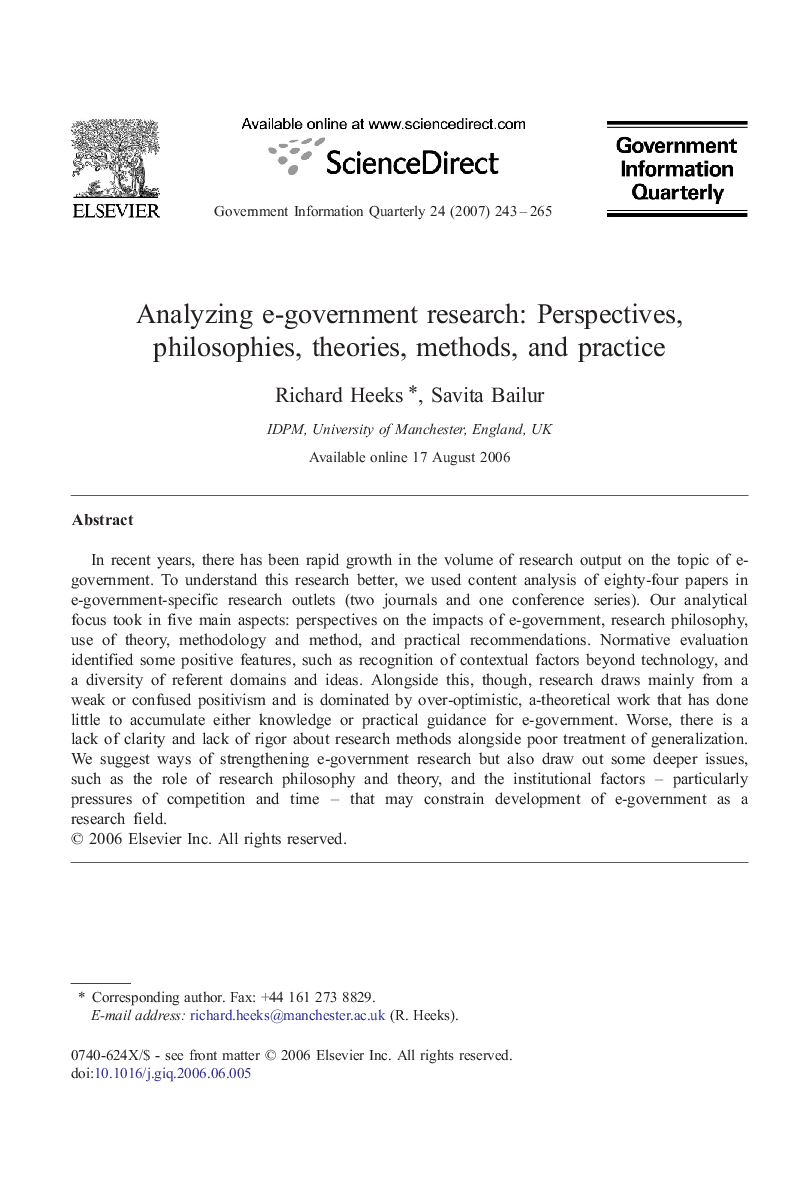| Article ID | Journal | Published Year | Pages | File Type |
|---|---|---|---|---|
| 1025057 | Government Information Quarterly | 2007 | 23 Pages |
In recent years, there has been rapid growth in the volume of research output on the topic of e-government. To understand this research better, we used content analysis of eighty-four papers in e-government-specific research outlets (two journals and one conference series). Our analytical focus took in five main aspects: perspectives on the impacts of e-government, research philosophy, use of theory, methodology and method, and practical recommendations. Normative evaluation identified some positive features, such as recognition of contextual factors beyond technology, and a diversity of referent domains and ideas. Alongside this, though, research draws mainly from a weak or confused positivism and is dominated by over-optimistic, a-theoretical work that has done little to accumulate either knowledge or practical guidance for e-government. Worse, there is a lack of clarity and lack of rigor about research methods alongside poor treatment of generalization. We suggest ways of strengthening e-government research but also draw out some deeper issues, such as the role of research philosophy and theory, and the institutional factors – particularly pressures of competition and time – that may constrain development of e-government as a research field.
